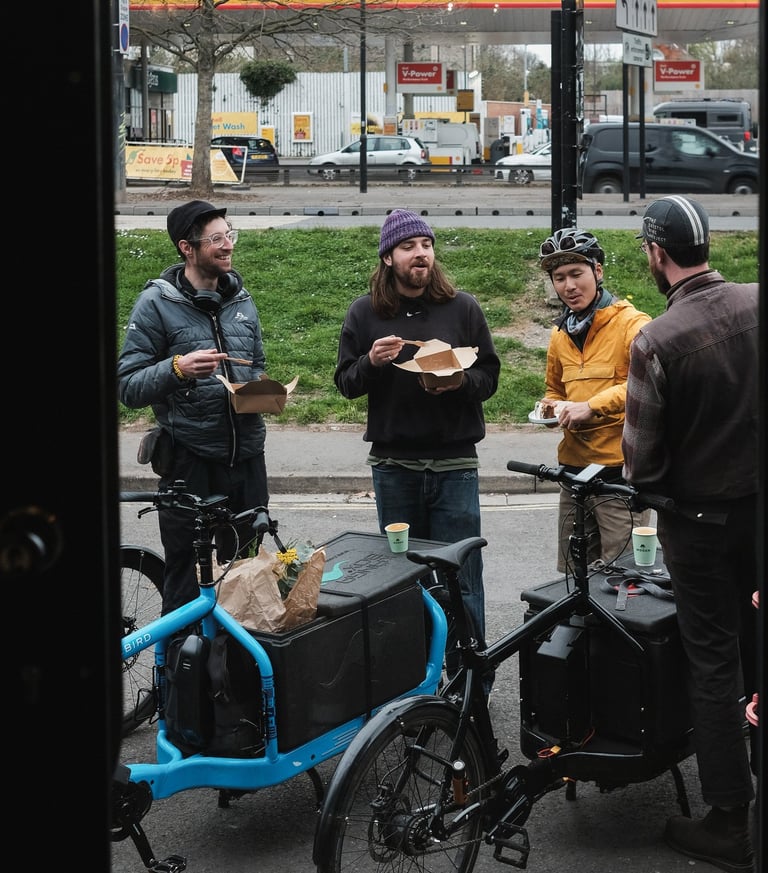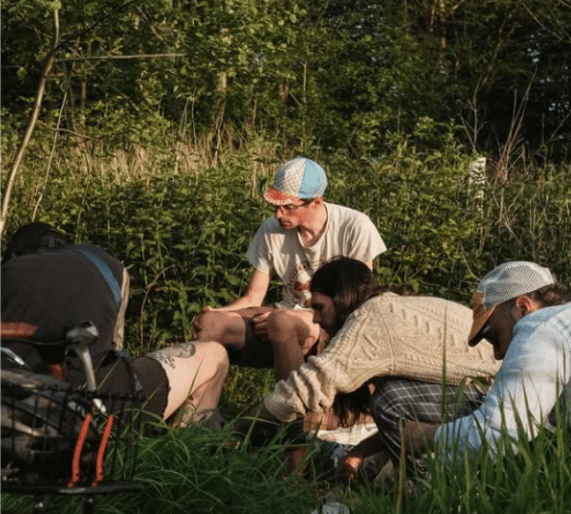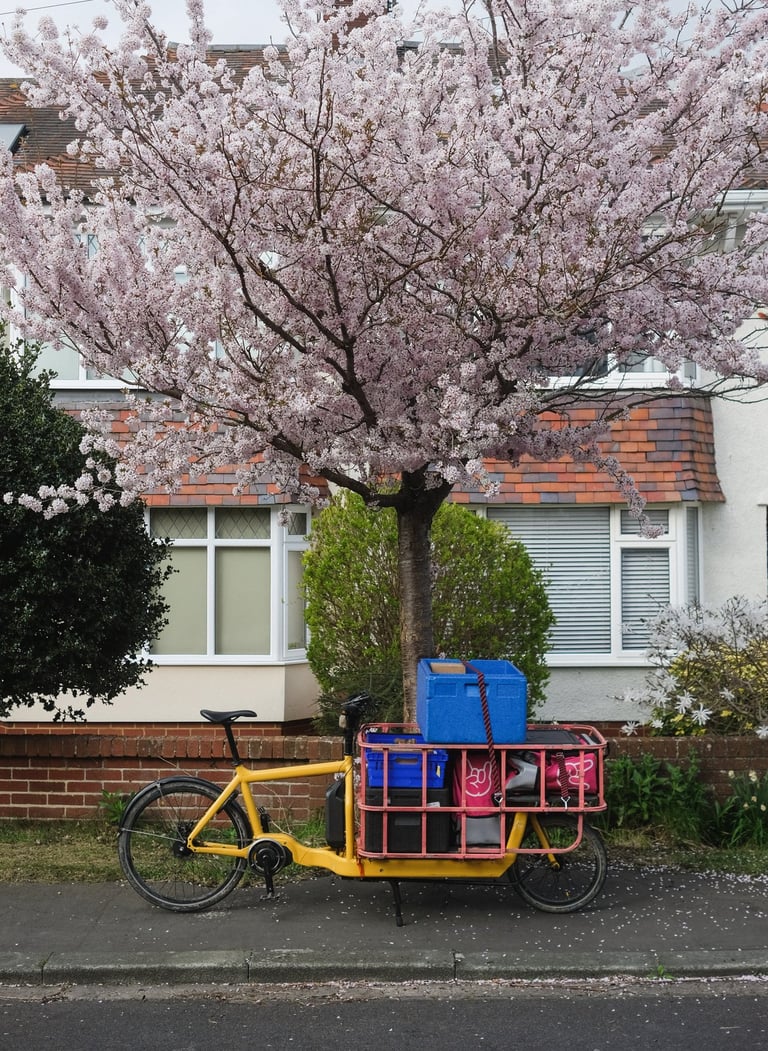Rethinking Work
The Social Sustainability of a Co-operative and the Value of a 5-Day working Week
Jon Dennis
4/11/20253 min read
In an industry where overwork is frequently worn as a badge of honour and the gig economy prioritises profit over people, Pedal Collective has chosen to take a different path. As a worker co-operative, we are structured not around hierarchy and extraction, but around shared ownership, mutual support, and sustainability; both environmental and social.
Why a Co-operative?
A co-operative is a simple idea: people working together, owning their labour, and deciding collectively how that labour is valued and directed. In reality, it means we all have a say in how the business is run. There's no boss or middlemen extracting profit from the work of others, because we are the business.
This model redistributes power and income more fairly than traditional capitalist businesses. Decisions are made with transparency and consent, not as orders from above. We support one another through tough days, and celebrate together on the good ones. The work becomes not just a job, but a shared project that we believe in and are motivated by. This kind of solidarity fosters resilience, mental wellbeing, and a deeper sense of purpose as well as improving the quality of service the customer receives. It’s not often that a courier company receives good reviews, but our average 4.9 star reviews, from 34 reviews, across our first few months speaks for itself.


Socio-Economic Benefits
Being part of a co-operative doesn’t just feel better, it works better, especially in uncertain economic times (and it feels like we’re pretty deep in them now) . Co-ops are often more stable, more responsive and flexible to local needs, and more invested in their communities. We circulate money within our local economy rather than sending profits off to distant shareholders we have no connection with. We collaborate rather than compete. We build long-term relationships with clients and partners based on trust and shared values.
Importantly, as well as being environmentally sustainable, we’re always focusing on creating better working conditions. One decision that’s been particularly important to us is the commitment to a five-day work week.
A Model for the Future?
Our hope is that co-operatives like Pedal Collective can offer a vision for what the future of work could look like: democratic, humane, and sustainable. A future where communities, not corporations, have power. Where work is something you do, not something that owns you.
We're not perfect, we’ve got a long way to go and we’re always learning. But by rooting our work in co-operation and balance, we’re proving that another way of working, and living, is possible.


The 5-Day Week: A Radical Act?
In today’s hustle culture, choosing to work “only” five days a week on a new business venture might seem unambitious or lazy, but it’s actually both a political and practical decision.
Much has been made of shorter working weeks for office and remote workers, and the advantages that this can bring it in terms of productivity and mental health for both employee and employer. How can these working practices be translated into a small team in a service based industry? We’ve committed to working a regular five day week and resisting the temptation to stretch ourselves thin; with this we make space for rest, reflection, and life outside of labour. That’s not just good for us as individuals, it’s good for the collective. We can focus our energies on maintaining our 5 star service. It’s been proven that well-rested people make better decisions, treat each other with more kindness, and are less likely to burn out. We believe that good work can only happen when workers are whole people, not just cogs in a machine.
Importantly, having a weekend that aligns with the broader rhythms of society, when our partners, families, and friends are also off, means our rest is truly restorative. We get to spend quality time with the people we care about, nurture relationships, and participate in community life. That time shouldn’t be a luxury, it’s essential to our wellbeing, and it reminds us that we are more than our work.
We've seen firsthand how this choice supports mental health, reduces turnover, and strengthens our collective in the long run. It’s also an implicit critique of systems that glorify overwork and ignore the toll it takes on people and the planet.




